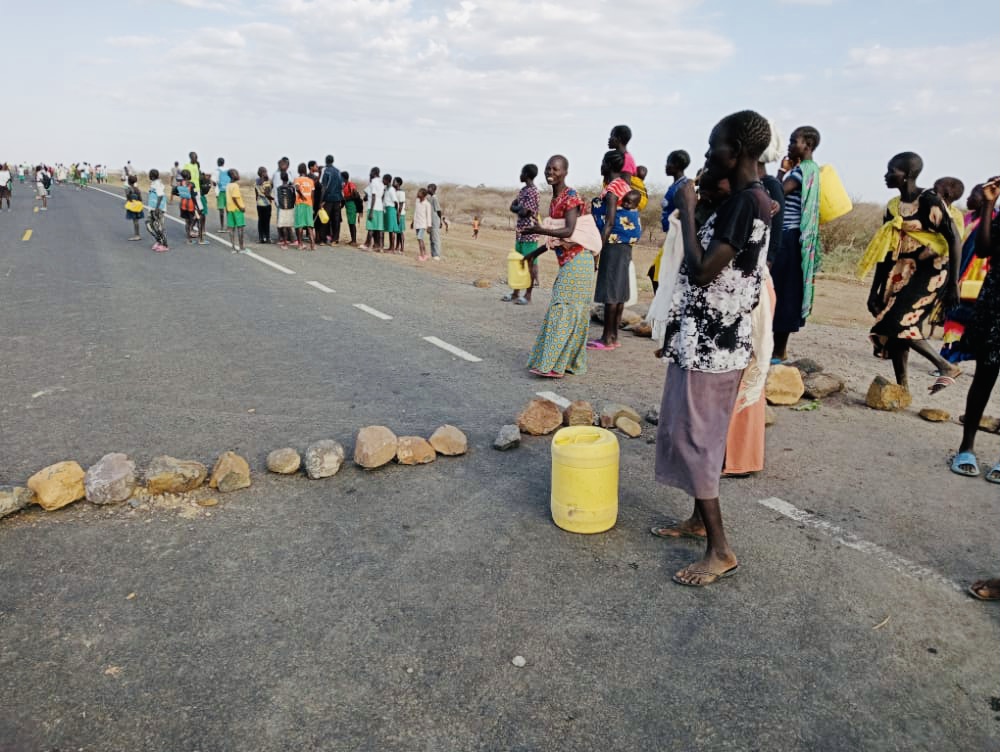Qaabata Boru & Hassan Mahmud – KANERE Staff Writers, December 2022
Refugees in Kalobeyei settlement protest due to prolonged water shortages as the implementing agencies struggle to find tangible water solutions.

On November 1 2022, residents of Kalobeyei’s Village One and Two neighborhoods blocked the main road that connects the settlement to the central business district to Kakuma and nearby humanitarian compounds following an extended period of water problems.
“In my block, water taps are dry for 5 days, but why?” 38-year-old Halima asked a KANERE reporter at the scene of the protest.
“We’ve no clean drinking water all year long, but why? Is it always about a funding issue? People are out here because our situation is bad”, Halima added, questioning a reporter.
During this protest, roads were barricaded with stones for a number of hours, with the majority of the protesters being women and girls who were holding empty jerricans for fetching water.
Despite the fact that water shortages have been frequent during a recent dry spell, residents of Kalobeyei have raised huge unsolved complaints about water shortages for years.
According to a local community leader in Kalobeyei’s Village One, the villages have been faced with water shortages for a long time.
“I moved here seven years ago when Kalobeyei was opened with big ideas and promises [than Kakuma]. I realize that it’s all not true because UNHCR and local government cannot fix infrastructural problems here”, a Kalobeyei refugee leader told KANERE.
On the morning of March 21 2022, refugees from three zones in Kakuma marched to the UNHCR main compound in Kakuma One to complain about severe water shortages as a across-cutting situation facing the camp residents.
Press attempts to contact the concerned agency were unsuccessful as phone calls were not being answered at the time of publishing this story.
As KANERE continues to document this, the perpetual water issue raises a key question to further examine: is water treated as a need or a right?
